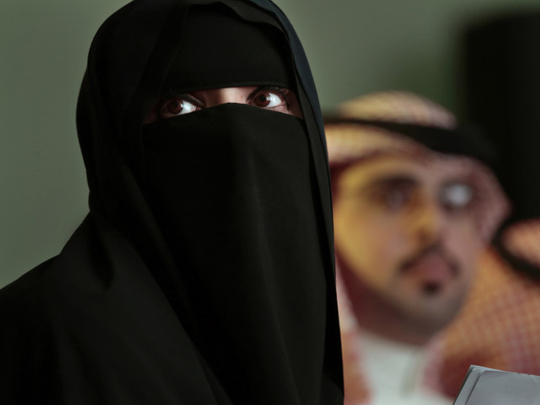
Manama: In an unprecedented move, Saudi Arabia’s Haj ministry has hired women on a permanent basis to help provide services for female pilgrims.
The six women were recruited by the ministry’s offices in Madinah, the second holiest city for Muslims and follows recommendations to hire female employees in the Makkah offices as well.
According to the recommendations, more than 100 women should be hired by the offices in Makkah and Madinah.
The new employees will help ensure that female pilgrims are provided with the best services as they perform pilgrimage, the last of Islam’s five pillars.
The six women have worked with the Haj ministry offices, but on a temporary basis during the pilgrimage season, Mohammad Al Bijawi, the head of the Madinah offices said, quoted by Saudi daily Okaz on Wednesday.
Several social media users welcomed the move, explaining that it was needed for both the employees and the female pilgrims.
One blogger writing under the moniker of Visitor said that the same decision should be applied within the Commission for the Promotion of Virtue and the Prevention of Vice.
“They should have female employees to sit and talk with women,” he said. “It does not make sense at all to have a man question a woman when there is an investigation,” he said.
Those who opposed the move said that women were not physically fit to carry out the tasks.
“Such a position demands a high level of public endurance and we need men to assist pilgrims and rectify mistakes and misconceptions about performing pilgrimage,” he said. “The biggest concern is that women would soon complain about harassment by fellow employees or pilgrims,” he said.
Truth, another blogger, said the decision meant to “allow women to gout of their houses and seek jobs.”
“Such a move will have a deep negative impact on the families,” he said. “It will cause women to mix with men and this is not acceptable,” he said.
The rejections reflect the strong opposition by conservatives in the kingdom to a greater political, economic or social role for women.
Conservatives have been speaking out against the participation of women for the first time in the municipal elections due in December.
Arguments against voting or running in the elections are often rooted in religious interpretations and social traditions and resembled those used to ensure women are not allowed to drive cars.
In a breakthrough for the kingdom in January 2013, the late King Abdul Aziz Al Saud appointed 30 women to the Shura (Consultative) Council for the first time in the country’s history.
The decree stipulated that women’s representation would not be less than 20 per cent of the total number of the Shura members and that female members had full rights and assumed all duties and responsibilities.
The late king, whose stances on promoting women’s rights were obvious since he became ruler in August 2005, also said that women would have the right to run and vote in the 2015 municipal elections.









